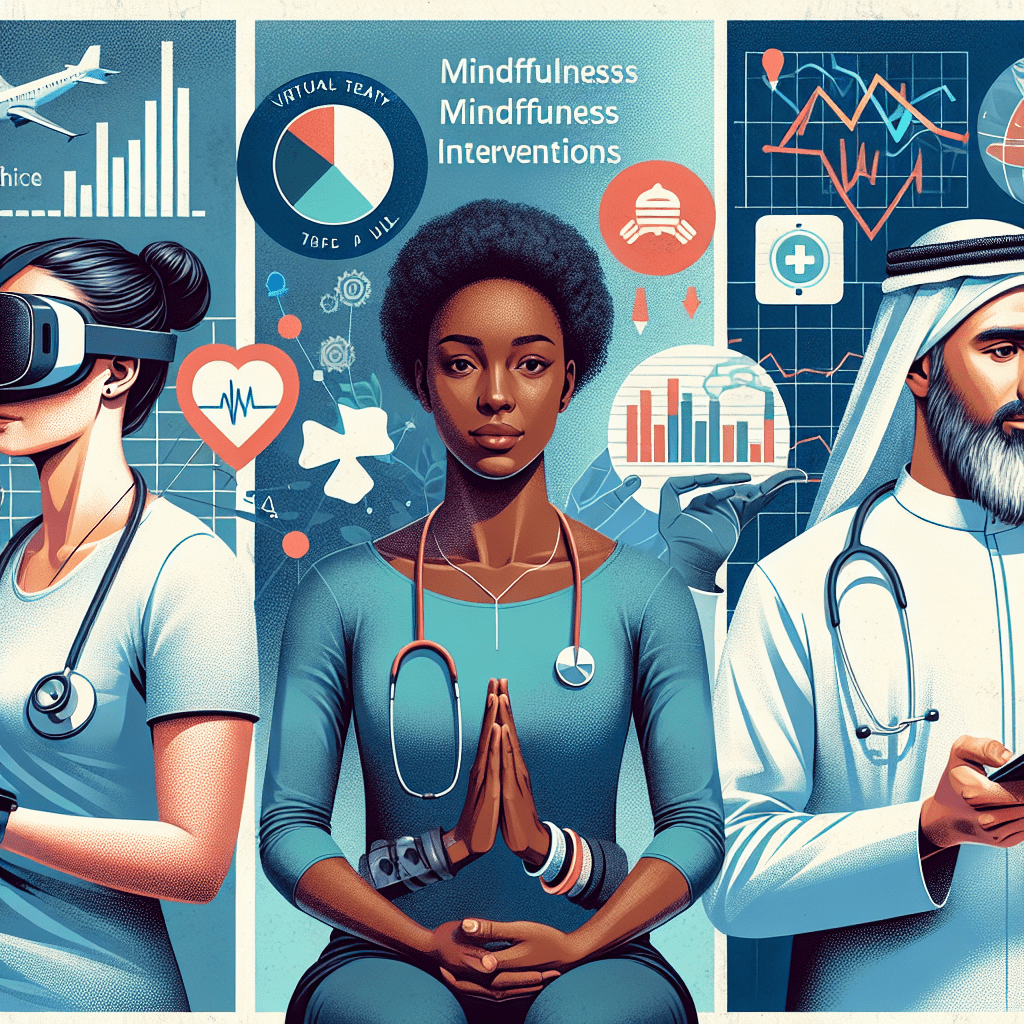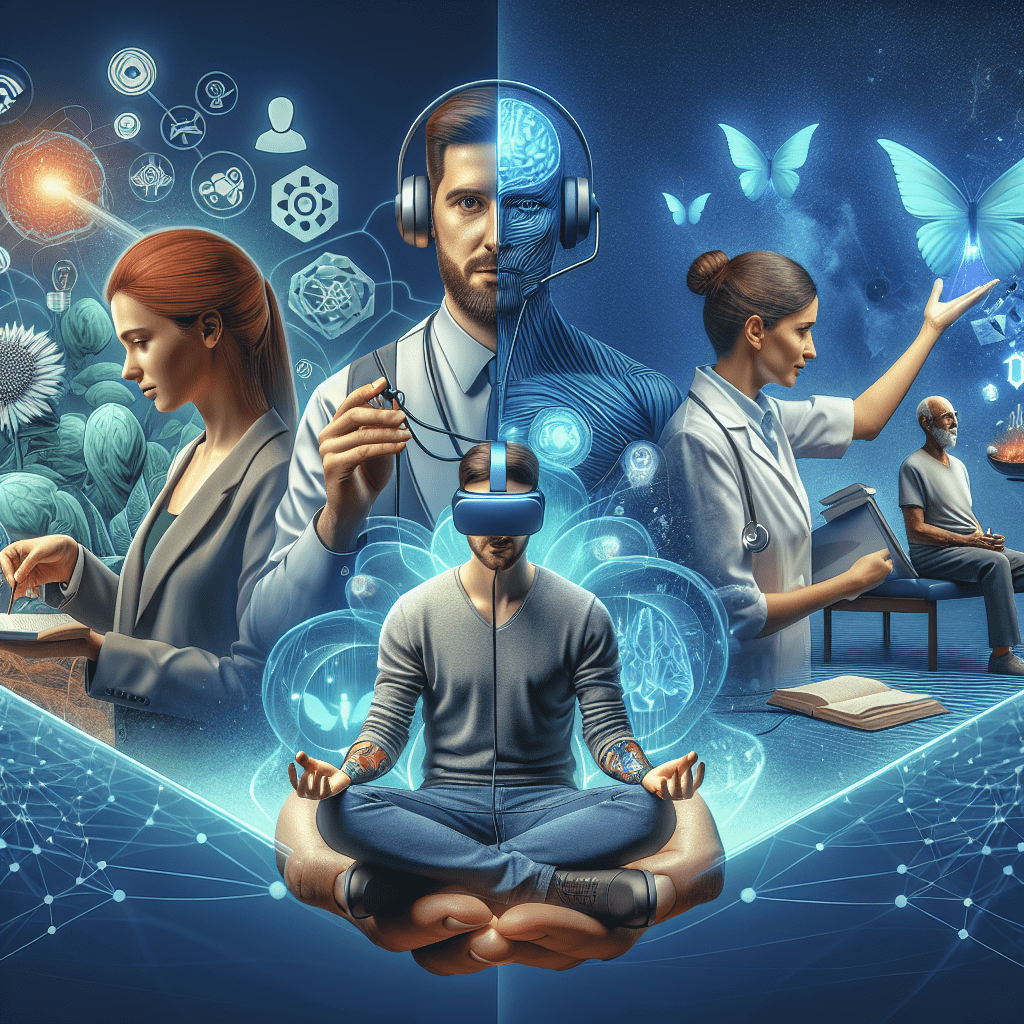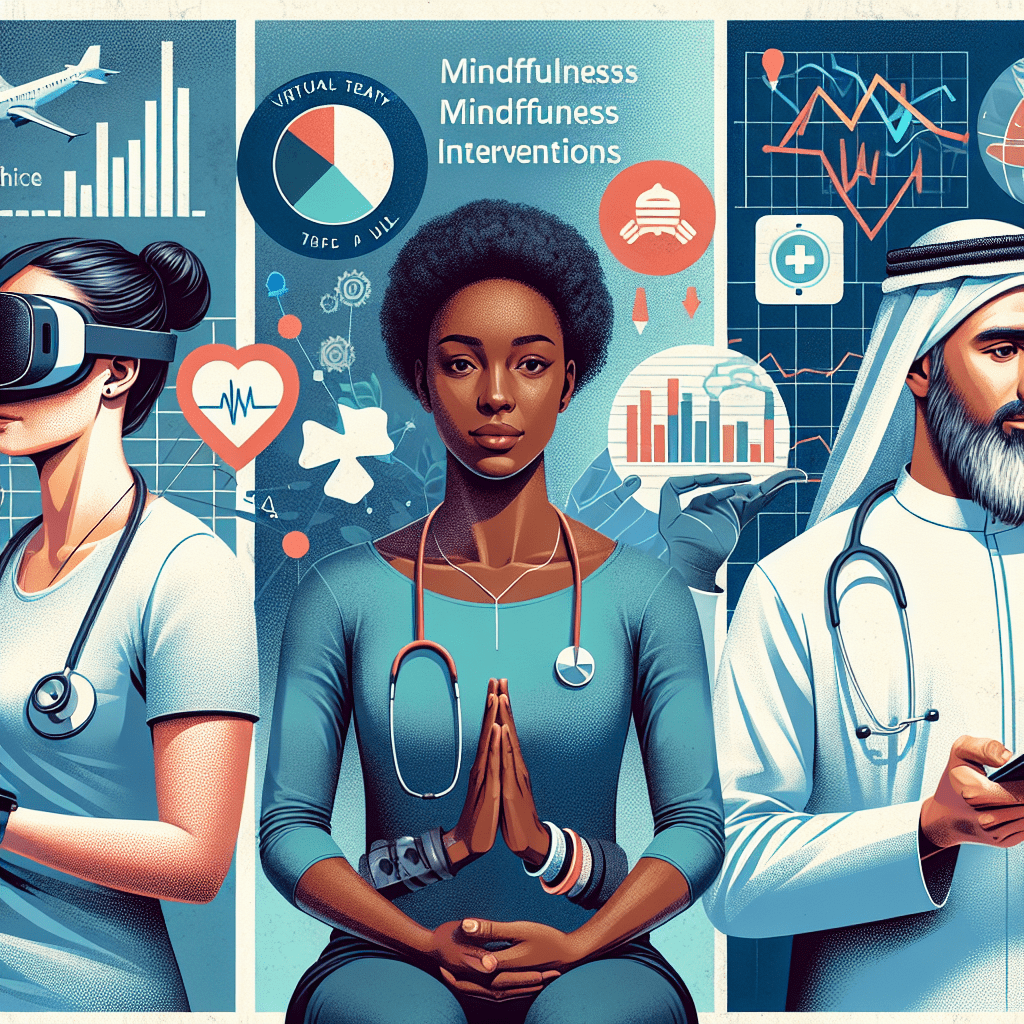In the ever-evolving field of therapy services, it is crucial to stay updated on the latest emerging trends. From mental health counseling to physical rehabilitation, the landscape of therapy is constantly evolving. In this article, we will explore the exciting new developments and approaches that are shaping the future of therapy services. Whether you are a therapist or someone seeking therapy, understanding these emerging trends will provide valuable insights into the advancements and possibilities within the field. So, let’s embark on this journey together and discover the transformative potential of these cutting-edge trends in therapy services.

Teletherapy
Teletherapy is a revolutionary approach to counseling that allows individuals to receive therapy sessions from the comfort of their own homes. Through the use of technology, therapists and clients can connect through virtual counseling platforms, eliminating the need for in-person visits. This has greatly increased access to mental health services, especially for those who may have limitations such as physical disabilities, lack of transportation, or living in remote areas. Teletherapy has proven to be particularly beneficial during times of crisis, such as the COVID-19 pandemic, when face-to-face interactions have been limited. It provides a safe and convenient way for individuals to receive the support they need.
Virtual counseling
Virtual counseling is a subset of teletherapy that specifically focuses on providing counseling services through video conferencing platforms. Therapists can conduct one-on-one sessions with their clients, creating a personal and intimate therapeutic environment. This modality allows for the observation of non-verbal cues and facial expressions, which are crucial in understanding a client’s emotions and providing effective support. Through virtual counseling, therapists can offer a wide range of therapeutic interventions and techniques, tailored to the unique needs of each individual.
Online therapy platforms
Online therapy platforms have emerged as a comprehensive solution for delivering therapy services. These platforms provide a centralized hub where clients can access a variety of mental health resources, schedule appointments, and communicate with their therapists. Many online therapy platforms also offer additional features such as secure messaging, journaling tools, and educational resources. This integration of technology and therapy allows for a more holistic approach to mental healthcare, empowering individuals to engage in their own healing process.
Mobile Apps in Therapy
As smartphones have become an integral part of our daily lives, mobile apps have also found their way into the world of therapy. Mental health apps provide individuals with a range of tools and resources to support their mental well-being. These apps often include features such as mood tracking, guided meditation, stress management techniques, and cognitive behavioral therapy exercises. By having these resources readily available on their phones, individuals can access support whenever they need it, making therapy more accessible and convenient than ever before.
Mental health apps
Mental health apps offer a wide range of features and resources to support individuals’ mental well-being. These apps often include guided therapy exercises, such as journaling prompts, cognitive behavioral therapy techniques, and relaxation exercises. They may also provide educational content on various mental health topics, helping individuals gain a better understanding of their own mental processes. By utilizing mental health apps, individuals can engage in self-reflection and apply therapeutic techniques outside of their therapy sessions, enhancing their overall treatment experience.
Mindfulness and meditation apps
Mindfulness and meditation apps have gained immense popularity in recent years, offering individuals an opportunity to cultivate a sense of peace and calm in their busy lives. These apps provide guided meditation sessions, breathing exercises, and mindfulness practices that can help reduce stress and anxiety. By incorporating mindfulness and meditation into their daily routine, individuals can develop a greater awareness of their thoughts and emotions, improving their overall mental well-being. These apps serve as a valuable complement to traditional therapy, allowing individuals to further deepen their self-understanding and emotional regulation skills.
Clinician-Client Communication
Effective communication between clinicians and clients is essential for building a strong therapeutic relationship and ensuring the success of therapy. With the advancements in technology, new tools have emerged to facilitate secure and convenient communication between clinicians and clients.
Secure messaging platforms
Secure messaging platforms enable clinicians and clients to communicate securely and in real-time. These platforms often have built-in encryption measures to protect the privacy and confidentiality of client information. Through secure messaging, clients can reach out to their clinicians between sessions to ask questions, seek guidance, or share updates on their progress. This ongoing communication enhances the therapeutic process, allowing for greater continuity of care and the opportunity to address emerging concerns in a timely manner.
Video conferencing tools
Video conferencing tools have revolutionized the way therapy sessions are conducted. With the ability to see and hear each other in real-time, clinicians and clients can engage in face-to-face interactions that closely resemble traditional in-person sessions. Video conferencing tools not only allow for effective communication but also provide a sense of connection and presence, even when physical distance separates the clinician and client. This technology has become an invaluable resource for delivering therapy services, particularly during times when in-person sessions are not feasible or preferred.

Artificial Intelligence in Therapy
Artificial intelligence (AI) has made significant advancements in various industries, and therapy services are no exception. AI has the potential to greatly enhance the efficacy and accessibility of therapy through innovative applications.
Chatbot therapy
Chatbot therapy utilizes AI-powered chatbots to simulate conversations with individuals seeking support. These chatbots are designed to provide empathetic and non-judgmental responses, offering a supportive space for individuals to express their thoughts and emotions. While chatbot therapy is not intended to replace human therapists, it can serve as a valuable supplementary tool, providing immediate support and resources for individuals in need. Furthermore, chatbot therapy can help reduce the stigma associated with seeking therapy, as individuals may feel more comfortable opening up to a non-human entity.
Virtual reality exposure therapy
Virtual reality (VR) exposure therapy is an emerging treatment approach that utilizes immersive virtual environments to expose individuals to anxiety-inducing situations in a controlled and safe manner. This therapy is particularly effective for treating phobias, post-traumatic stress disorder (PTSD), and anxiety disorders. Through VR, individuals can face their fears and anxieties in a virtual setting, gradually building their resilience and tolerance. This technology allows therapists to create personalized and customizable treatment plans, providing a more efficient and targeted therapeutic intervention.
Group Therapy and Support
Group therapy has long been recognized as a valuable and effective treatment modality, allowing individuals to connect with others who share similar struggles and experiences. With the rise of teletherapy and online platforms, group therapy and support sessions are now accessible to individuals from all walks of life, regardless of geographic location.
Online support groups
Online support groups provide individuals with a supportive community where they can connect with others who may be facing similar challenges. These groups are often facilitated by licensed therapists or trained peer facilitators who create a safe and inclusive environment. Participants can openly share their experiences, seek advice, and gain valuable insights from others who have walked similar paths. Online support groups offer a sense of belonging and understanding, fostering connections that can be transformational in one’s healing journey.
Virtual group therapy sessions
Virtual group therapy sessions bring together individuals in a structured therapeutic setting, facilitated by a licensed therapist. These sessions provide an opportunity for group members to share their thoughts, emotions, and experiences, while receiving support from both the therapist and other participants. Virtual group therapy can be particularly beneficial for those who may feel isolated or struggle with social anxiety, as it allows individuals to engage in therapeutic work from the comfort of their own homes. The group dynamic and shared experiences provide a sense of validation and support that can be empowering and transformative.
Culturally Sensitive Therapy
Culturally sensitive therapy recognizes and respects the diverse cultural backgrounds and identities of individuals seeking therapy. It involves an awareness and understanding of cultural norms, values, and beliefs, in order to provide effective and inclusive mental healthcare.
Multicultural counseling
Multicultural counseling is a framework that acknowledges and values cultural differences and diversity. It promotes an understanding of how culture impacts an individual’s perception of themselves and the world around them. Multicultural counselors are trained to address the unique challenges and experiences that may arise due to cultural factors. They strive to create a safe space for clients to explore their cultural identities, heritage, and values, while honoring their individuality. Multicultural counseling promotes inclusivity, respect, and cultural competence within the therapeutic relationship.
Implicit bias awareness
Implicit bias refers to unconscious biases that individuals may hold towards others based on attributes such as race, gender, age, or disability. In therapy, it is essential for clinicians to be aware of their own biases to ensure that they do not impede the therapeutic process or perpetuate inequities. Implicit bias awareness training equips clinicians with the knowledge and tools to recognize and challenge their biases, promoting fair and equitable treatment for all clients. By fostering awareness and self-reflection, therapists can create a more inclusive and culturally sensitive therapeutic environment.
Holistic and Integrative Approaches
Holistic and integrative approaches to therapy recognize the interconnectedness of mind, body, and spirit. These approaches integrate various therapeutic modalities and techniques to address the whole person and promote overall well-being.
Mind-body therapies
Mind-body therapies, such as yoga, tai chi, and mindfulness-based stress reduction, focus on the connection between mental and physical well-being. These therapies incorporate gentle movement, breathing exercises, and meditation practices to promote relaxation, self-awareness, and stress reduction. By engaging in mind-body therapies, individuals can cultivate a greater sense of balance, resilience, and overall well-being. These approaches can be particularly beneficial for individuals experiencing anxiety, depression, chronic pain, or trauma-related symptoms.
Wellness-focused therapies
Wellness-focused therapies embrace a proactive and preventive approach to mental health, emphasizing the importance of self-care and self-reflection. These therapies help individuals identify and cultivate their strengths, engage in healthy coping strategies, and establish fulfilling daily practices. Wellness-focused therapies may include goal-setting, self-compassion exercises, and exploration of values and purpose. By focusing on overall well-being, individuals can develop the skills and mindset necessary to thrive and maintain mental wellness.
Emphasis on Preventive Mental Healthcare
Preventive mental healthcare aims to identify and address mental health concerns at an early stage before they become more severe or chronic. By focusing on prevention, individuals can take proactive steps to maintain their mental well-being and prevent the onset of more significant mental health challenges.
Early intervention programs
Early intervention programs are designed to identify and address mental health concerns early on, particularly in children and adolescents. These programs often involve screenings, assessments, and targeted interventions to support individuals at risk or experiencing early signs of mental health difficulties. By intervening early, mental health professionals can provide appropriate interventions and support, reducing the impact of mental health challenges and promoting positive outcomes.
Wellness check-ins
Wellness check-ins involve regularly assessing one’s mental well-being, similar to how individuals monitor their physical health. Mental health professionals can implement wellness check-ins during therapy sessions or through digital platforms, asking individuals to reflect on their current emotional state, stress levels, and overall well-being. These check-ins provide an opportunity for individuals to identify any emerging concerns and seek appropriate support if needed. By prioritizing regular wellness check-ins, individuals can stay attuned to their mental health and take proactive steps to maintain their well-being.
Biofeedback and Neurofeedback
Biofeedback and neurofeedback technologies provide individuals with real-time information about their physiological responses, allowing them to learn self-regulation techniques and improve their mental well-being.
Physiological monitoring devices
Physiological monitoring devices, such as heart rate monitors, electroencephalogram (EEG) sensors, and skin conductance sensors, capture data on an individual’s physiological responses. This information can be used to assess their stress levels, arousal, and other physical indicators of mental well-being. By gaining insight into these physiological responses, individuals can better understand the connections between their mind and body, and learn techniques for self-regulation and stress management.
Brainwave training technologies
Brainwave training technologies, such as neurofeedback, enable individuals to visualize and regulate their brainwave activity. By wearing an EEG sensor, individuals can receive real-time feedback on their brain activity and learn techniques to modulate their brainwaves. Neurofeedback has shown promising results in treating conditions such as ADHD, anxiety, and insomnia. By providing individuals with the tools to self-regulate their brain activity, these technologies empower them to take an active role in managing their mental health.
Expansion of Online Resources
The expansion of online resources has transformed the landscape of therapy services, making mental health support more accessible and convenient for individuals around the world.
Telehealth platforms for therapy
Telehealth platforms offer a wide range of services and resources, connecting individuals with qualified therapists and mental health professionals. These platforms provide a convenient way to access therapy services, with features such as online scheduling, secure messaging, and video conferencing. Telehealth platforms also often offer a variety of therapeutic specialties and modalities, allowing individuals to find the right fit for their needs. By expanding therapy services online, individuals can overcome barriers such as geographic limitations and scheduling constraints.
Digital self-help resources
Digital self-help resources have become increasingly popular, offering individuals the opportunity to engage in therapeutic exercises and techniques independently. These resources may include online courses, self-help books, worksheets, and interactive tools. Digital self-help resources empower individuals to take an active role in their mental health and provide additional support between therapy sessions. By utilizing these resources, individuals can enhance their learning and growth, ultimately facilitating their journey towards mental wellness.
In conclusion, therapy services have evolved significantly in recent years, driven by advancements in technology, a focus on inclusivity, and a shift towards proactive mental healthcare. Teletherapy has emerged as a groundbreaking approach, offering virtual counseling and online therapy platforms to expand access to mental health services. Mobile apps have also become valuable tools, providing individuals with a range of mental health resources and mindfulness practices. Clinician-client communication has been enhanced through secure messaging platforms and video conferencing tools. Artificial intelligence has found its place in therapy, with chatbot therapy and virtual reality exposure therapy offering innovative treatment options. Group therapy and support have become widely accessible through online platforms, fostering connections and community. Culturally sensitive therapy promotes inclusive and insightful treatment, while holistic and integrative approaches embrace the interconnectedness of mind, body, and spirit. Emphasis on preventive mental healthcare highlights the importance of early intervention programs and regular wellness check-ins. Biofeedback and neurofeedback technologies offer individuals the opportunity to regulate their physiological responses and brainwave activity. The expansion of online resources, such as telehealth platforms and digital self-help resources, further supports individuals on their mental wellness journey. These emerging trends demonstrate the transformative potential of therapy services, empowering individuals to prioritize their mental health and access the support they need.

